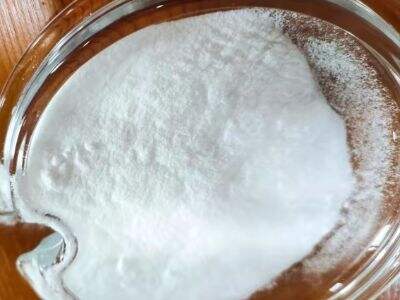There is an essential material for making glass called CaCO which is significant in making of glasses made of high quality. This article will provide new ideas for us to know how CaCO is put into use in glass production.
Investigations of the role of calcium carbonate in making of glass
CaCO (Calcium Carbonate) is an essential component of the manufacturing of glass. It aids in the stabilization of the raw glass mix, and in enhancing some of its quality. On the addition of CaCO in the glass batch, it reacts with other ingredients to form a tough durable glass. Without CaCO, the glass would be weaker and might shatter.
Caco3 for the Manufacturing of Glass Know the Advantages Now
There are many advantages in using CaCO for glass production. It also makes glass more resistant to heat and chemicals which is why it is so useful in cooking and in the chemical industry. CaCO also aids in the translucency and glassiness that brings the glass its shiny attractiveness. With CaCO 3, glass makers can produce high-quality glasses that are both decorative and functional.
Analysis of the CaCO application schemes for manufacturing perfect glass articles
There are various methods used by glass manufacturers for the application of calcium chloride powder into glass. One well known method is to blend CaCO with other materials such as sand and soda ash to form a glass batch. This mixture is then heated in a furnace and formed into the glass item. Another method is to directly add CaCO powder to the glass batch prior to melting. This technique also simultaneously make sure the CaCO is uinifomly distributed in the glass material, so the product quality is good.
Exploration on influence of CaCO on properties of glass materials
The application of CaCO plays endowed with glass characteristics is very significant. It helps make the glass stronger and more durable, which can be important for products that have to endure high temperatures or harsh chemicals. calcium chloride powder is also used in order to increase transparency and clearness of the glass, due to its aesthetic value for the consumers. Further, CaCO can improve the colour and texture of the glass, providing it an unique and beautiful look. From the above it follows that the application of CaCO for the production of glass products contributes to obtaining quality products that satisfy the consumer demand.
Investigation on future application of CaCO in the development of glasses making technology
With the development of technology, CaCO will be more and more widely used in the glass manufacturing. CaCO is also being investigated for its potential use in glassmaking technology, including special glass products for various industries. Using the special properties of CaCO, glass manufacturers can develop products stronger, more resilient, and with better visual aesthetics. The future of CaCO in glass production seems to be optimistic, and it will always make a contribution to produce high-quality glass materials in the future year.
In short, CaCO plays a vital role in the glass production where high quality is observed. From information about the use calcium chloride powder in glass making the advantages, the methods of applying it the effect on the properties and the future potential you can see how relevant CaCO is in the development of glass making technology. Thanks to the assistance from CaCOs, glass producers like BANGZE could still develop new and striking glass products that cater for consumer demands.
Table of Contents
- Investigations of the role of calcium carbonate in making of glass
- Caco3 for the Manufacturing of Glass Know the Advantages Now
- Analysis of the CaCO application schemes for manufacturing perfect glass articles
- Exploration on influence of CaCO on properties of glass materials
- Investigation on future application of CaCO in the development of glasses making technology

 EN
EN
 AR
AR
 NL
NL
 HI
HI
 JA
JA
 KO
KO
 RU
RU
 TL
TL
 IW
IW
 ID
ID
 LV
LV
 LT
LT
 VI
VI
 TH
TH
 TR
TR
 AF
AF
 MS
MS
 BN
BN
 EO
EO
 LA
LA
 MN
MN
 SO
SO



 ONLINE
ONLINE